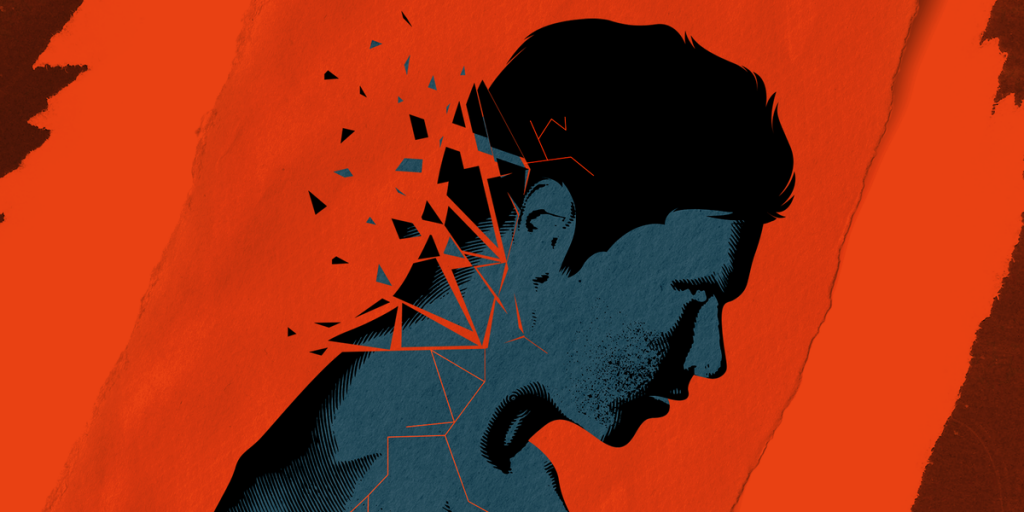
Mental Health Matters: Dispelling Myths and Embracing Truths
Mental health is an integral aspect of our overall well-being, yet it often remains a misunderstood and stigmatized topic. It encompasses our emotional, psychological, and social well-being, influencing how we think, feel, and act in our daily lives. Despite its importance, mental health issues continue to be disregarded or overlooked by many individuals and societies.
Common Myths
Mental health problems are rare
Contrary to popular belief, mental balance issues are not uncommon. They can affect anyone, regardless of age, gender, ethnicity, or socioeconomic status. In fact, mental health disorders are among the leading causes of disability worldwide.
Mental health issues are a sign of weakness
Having a mental health problem does not indicate weakness or inadequacy. Mental health disorders are complex conditions that can arise from a variety of factors, including genetics, biology, environment, and life experiences.
Only certain demographics are affected by mental health problems
Mental health issues do not discriminate. They can impact individuals from all walks of life. However, certain groups may face additional challenges in accessing sanity care due to systemic barriers and inequalities.
You can just “snap out of it”
Mental health disorders are not simply a matter of willpower or mindset. They are legitimate medical conditions that require proper diagnosis and treatment. Ignoring or dismissing sanity concerns can exacerbate symptoms and lead to further distress.
The Truth About saneness
Reality check on prevalence
Mental balance disorders affect millions of people worldwide, making them one of the most significant public health challenges of our time. From anxiety and depression to schizophrenia and bipolar disorder, these conditions can have a profound impact on individuals, families, and communities.
Understanding the spectrum
Mentalbalance exists on a continuum, ranging from optimal well-being to severe impairment. Most people will experience fluctuations in their mental health throughout their lives, and it’s essential to recognize the complexity and diversity of human experiences.
Destigmatizing seeking help
Seeking help for mental health concerns should be viewed as a courageous and proactive step towards healing and recovery. Accessing appropriate support and treatment can significantly improve outcomes and quality of life for individuals struggling with mental health issues.
Factors
Biological factors
Genetics, brain chemistry, and neurobiology can all play a role in the development of mental health disorders. Certain genetic predispositions or imbalances in neurotransmitters may increase susceptibility to conditions such as depression, anxiety, or schizophrenia.
Environmental factors
External influences such as trauma, stress, abuse, or substance abuse can profoundly impact mental health. Adverse childhood experiences, socioeconomic disparities, and environmental stressors can contribute to the onset or exacerbation of saneness problems.
Socioeconomic factors
Poverty, unemployment, inadequate housing, and lack of access to healthcare can create additional stressors and barriers to mental health care. Socioeconomic inequalities can exacerbate existing mental health disparities and perpetuate cycles of poverty and poor saneness.
Signs and Symptoms of Mental Health Issues

Physical symptoms
Physical manifestations of mental health issues may include fatigue, headaches, digestive problems, and changes in appetite or sleep patterns. These symptoms can often be overlooked or misattributed to other medical conditions.
Emotional symptoms
Feelings of sadness, anxiety, irritability, or hopelessness are common emotional symptoms of mental health disorders. Individuals may also experience mood swings, excessive worry, or difficulty regulating their emotions.
Behavioral symptoms
Changes in behavior, such as social withdrawal, avoidance of activities or responsibilities, or increased substance use, can indicate underlying mental health concerns. These behaviors may interfere with daily functioning and relationships.
Seeking Help: Resources and Support
Therapy and counseling
Professional therapy or counseling can provide individuals with a safe and supportive space to explore their thoughts, feelings, and experiences. Cognitive-behavioral therapy, psychotherapy, and other evidence-based approaches can help individuals develop coping skills and strategies for managing mental health symptoms.
Support groups
Joining a support group or peer-led community can offer individuals a sense of belonging and understanding. Connecting with others who have shared experiences can reduce feelings of isolation and provide valuable emotional support and validation.
Hotlines and helplines
24/7 crisis hotlines and helplines offer immediate support and assistance to individuals in distress. Trained counselors and volunteers can provide crisis intervention, emotional support, and referrals to local resources and services.
Self-Care Practices for Mental Well-Being
Exercise and physical activity
Regular exercise has been shown to have numerous benefits for mental health, including reducing symptoms of depression, anxiety, and stress. Engaging in physical activity releases endorphins, improves mood, and promotes overall well-being.
Healthy eating habits
A balanced diet rich in fruits, vegetables, whole grains, and lean proteins can support brain health and mood regulation. Avoiding excessive consumption of processed foods, caffeine, and alcohol can also contribute to better mental health outcomes.
Stress management techniques
Practicing relaxation techniques such as deep breathing, meditation, or mindfulness can help individuals manage stress and anxiety. Setting aside time for self-care activities and hobbies can also promote relaxation and emotional well-being.
The Role of Relationships

Supportive relationships
Strong social connections and supportive relationships are essential for maintaining good mental health. Spending time with friends, family, or loved ones can provide emotional support, encouragement, and a sense of belonging.
Setting boundaries
Establishing healthy boundaries in relationships is crucial for protecting your mental and emotional well-being. It’s important to communicate your needs and limits clearly and assertively, and to prioritize self-care and self-respect.
Seeking professional help together
For individuals struggling with mental health issues, involving loved ones in their treatment journey can be beneficial. Family therapy or couples counseling can help improve communication, resolve conflicts, and strengthen relationships while addressing mental stability concerns.
Breaking Down Barriers to Treatment
Accessibility and affordability
Ensuring access to affordable and culturally competent mental health care is essential for addressing disparities and barriers to treatment. This includes expanding insurance coverage, increasing funding for mental health services, and reducing stigma associated with seeking help.
Addressing cultural stigma
Cultural beliefs and attitudes surrounding mental stability can vary significantly across different communities. Addressing cultural stigma and misconceptions through education, advocacy, and outreach efforts is critical for promoting acceptance and understanding of mental health issues.
Education and awareness initiatives
Raising awareness about mental health, challenging stereotypes, and promoting open dialogue can help reduce stigma and discrimination. Schools, workplaces, and community organizations can play a vital role in educating individuals about mental stability and connecting them with resources and support.
Conclusion
In conclusion, mental health matters. By dispelling myths and embracing truths, we can create a more compassionate and supportive society where individuals feel empowered to seek help and prioritize their well-being. Through education, awareness, and access to resources, we can break down barriers to treatment and foster a culture of acceptance and understanding.
